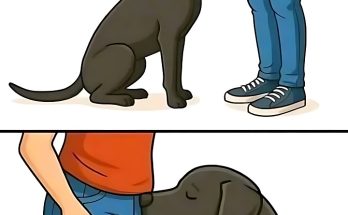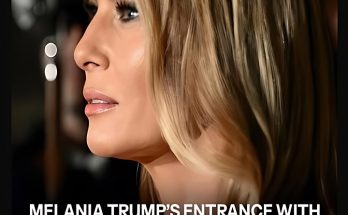The air in Studio 5, normally thick with the easy rhythm of laughter and applause, was thin and cold. The familiar neon glow of the Jimmy Kimmel Live! set seemed to cast long, accusatory shadows. At the center of it all sat the show’s namesake, not as a comedian, but as the quiet heart of a gathering storm. For days, since ABC indefinitely suspended his program, a silence had been imposed. But on this night, Jimmy Kimmel broke it. He leaned into the camera, his face etched with a gravity that twenty years of late-night television had never required of him, and delivered a line that landed with the force of a verdict: “The truth has waited far too long.”
The statement, stark and unadorned, was the culmination of a week that had fractured the landscape of American media. It began with the assassination of Charlie Kirk, the provocative and polarizing co-founder of Turning Point USA. As the nation processed the shock, Kimmel, in what would become his final broadcast before the suspension, made a caustic remark linking Kirk’s fate to a “conservative glove,” a line that immediately detonated a political firebomb. Advertisers threatened to pull out, network affiliates were flooded with angry calls, and ABC, citing a need for review and decorum, pulled the plug.

The network’s move was a calculated attempt to contain the damage, to quarantine the controversy. Instead, it created a martyr. The public, already wrestling with a torrent of unanswered questions about Kirk’s death, saw the ABC suspension not as a disciplinary action, but as an act of corporate censorship. In trying to silence one man, the network had amplified the very questions it seemed desperate to avoid.
Kimmel’s return was not a triumphant comeback but a solemn act of defiance. The usual fanfare was gone—no band, no monologue, no cheering audience. Just Kimmel, a desk, and a camera.
“I have laughed with you for twenty years,” he began, his voice low but steady, stripped of its usual irony. “I’ve mocked myself, mocked politics, mocked the news. But this? This cannot be mocked. The truth has waited far too long. And silence is no longer an option.”
The reaction was instantaneous and overwhelming. Before the segment even ended, social media was ablaze. The hashtag #TruthTooLong became the number one trend in the country. On Facebook and X, clips of his seven-word declaration were shared millions of times, often accompanied by captions of support: “They silenced him, but he silenced them first.” The narrative had flipped entirely. The anger once directed at Kimmel’s “conservative glove” comment was now aimed squarely at the network that had tried to muzzle him.
Outside ABC’s headquarters in Burbank, a crowd began to gather, their signs echoing Kimmel’s words. It was a scene reminiscent of a political rally, not a fan gathering for a talk show. The public had chosen a side, and it wasn’t with the corporation.
Inside the network, the atmosphere was one of sheer panic. Three sources who spoke on condition of anonymity described a “total meltdown.” “When he said those words, you could feel the building shake,” a senior producer recalled. “Everyone in the control room looked at each other like, ‘We just lost control of the narrative.’” Another programming executive admitted the strategy had backfired catastrophically. “We thought suspending him would contain the fire. Instead, he became the fire. We made him the martyr.”

The crisis deepened when Kimmel, pressed by a guest host about whether the network itself feared the truth, delivered his sharpest blow yet. “When truth becomes too expensive for executives, they call it silence,” he said, a wry, bitter smile touching his lips. “But America isn’t buying that bill anymore.” The studio audience, which had been sitting in tense silence, erupted in a standing ovation. It wasn’t laughter. It was a roar of defiant approval.
What ABC executives failed to understand is that this was never just about a late-night host. It was about the gnawing suspicion that has settled over the public square—a deep-seated distrust of official stories. The assassination of Charlie Kirk had left a gaping hole not just in the political landscape, but in the public’s sense of security. The official narrative centered on a lone, disturbed young man, Tyler Robinson, now inmate number 460956, held under constant surveillance. He was presented as the simple, tragic answer.
But for millions, Robinson felt less like a perpetrator and more like a decoy—a convenient receptacle for a nation’s grief and anger. Whispers in online forums and heated discussions in diners across the country pointed to a darker possibility: that Kirk, whose influence had become dangerously unpredictable, was removed by forces far more powerful than a single troubled individual. Who benefited from his silence? Who was waiting in the wings to inherit his movement, perhaps in a more controllable form?
This is the context into which Kimmel’s words landed. His statement, “The truth has waited far too long,” was interpreted not merely as a defense of his own freedom of speech, but as a direct challenge to the sanitized, incomplete narrative surrounding Kirk’s death. He wasn’t just talking about his own show; he was talking about a perceived cover-up that implicated the highest echelons of power and the media that serves them. ABC’s panic wasn’t just about a rogue host; it was about a host who had stumbled, perhaps intentionally, onto the third rail of American politics. He gave voice to the conspiracy theory that many were already thinking.
The institution of late-night television, once a reliable source of comfort and distraction, has in recent years become another front in the nation’s culture wars. Hosts are no longer just entertainers; they are seen as moral arbiters, political commentators, and, in moments like these, reluctant revolutionaries. Kimmel, by refusing to stay silent, transformed himself from a jester in the court of public opinion into a dissenter.
As the vigil outside Studio 5 continued into the night, with candles flickering under handmade signs, it became clear that this moment was bigger than Jimmy Kimmel. It was a referendum on the price of silence. In a fractured nation desperate for authenticity, the host who refused to be managed had become an unlikely hero. ABC had wanted to make him an example, and they succeeded. He became an example of what happens when a voice, pushed to the edge, decides to speak the truth, no matter the cost. His final words that night hung in the air, a promise and a threat: “The truth has waited far too long—and now the silence is theirs, not mine.”


